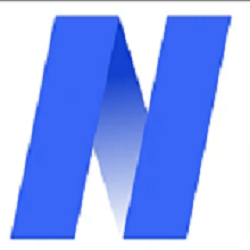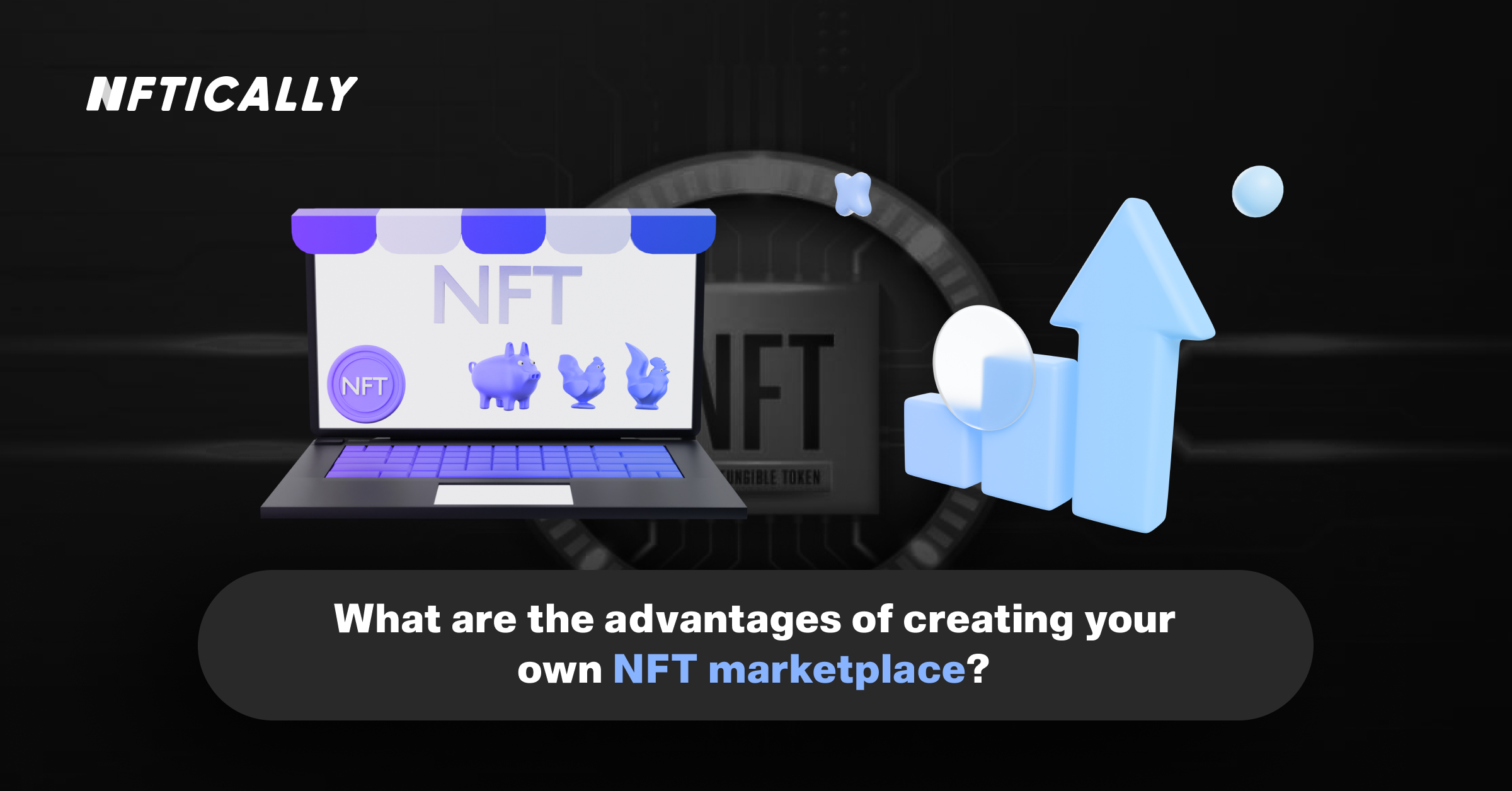What are the advantages of creating your own NFT marketplace?
 Nftically
Nftically
Unquestionably, NFTs have gone mainstream and become an integral part of the creator economy. Hence, it is profitable to launch a blockchain-powered trading platform and enable the seamless buying and selling of digital collectibles. Are you looking to dominate the Web 3.0 era? It’s the right time to create an NFT marketplace.
Explore the different advantages of NFT marketplace development
Round-the-clock trading of collectibles
Unlike stock exchanges with limited trading hours, NFT marketplaces can operate 24x7x365. Therefore, auctions can be held anytime and buyers can submit their bids from anywhere. Further, market participants will get benefits like decentralization, fair pricing, and sufficient liquidity.
Multiple sources of revenue
An NFT marketplace provides different revenue streams. It includes listing fees, transaction processing charges, minting fees, gas fees, and bidding charges. Besides that, additional revenue can be generated by imposing charges on conducting private sales, initial setup fees, and charges for selling multiple NFTs simultaneously. For instance, OpenSea, a well-known NFT marketplace imposes a flat 2.5% fee for every sale. Hence, there is a possibility of earning a high return on investment (ROI) by operating an NFT marketplace.
Transparency
The chances of scams and dubious deals are reduced to a great extent. NFT marketplaces running on blockchain networks ensure transparency. For example, OpenSea displays data about the top NFT collections. Users can filter the data based on time (24 hours, 7 days, and 30 days). Further, they can go to the rankings dashboard and see details like the trading volume, floor price, number of owners, and number of items.
Hence, creators get more exposure and investors can easily discover valuable collectibles. NFT marketplaces that give more priority to transparency will witness an increase in sales. Adding features like Notable Drops and Trending NFTs will capture the trust of prospective buyers and sellers.
Authenticity
For instance, Rarible offers verified badges for NFT collections, creators, and collectors. This ensures a safe experience for all users. Only genuine applications submitted by NFT buyers and sellers will get approved.
While investors are advised to do their own research while dealing with NFTs, buying digital collectibles from a verified artist is safe. Moreover, verified accounts get greater visibility on an NFT marketplace. Verified NFT collections have a higher chance of getting featured in the Explore Feed. Leaderboards will most likely display NFT creators and collectors with verified badges rather than unverified ones.
Multi-layer security measures
An NFT marketplace that integrates top-notch security measures will offer a safe trading experience for buyers and sellers. Some of the mandatory security measures are end-to-end data encryption, two-factor authentication (2FA), anti-DDoS protection, and protection against CSRF and SSRF attacks. This will safeguard NFT creators and collectors from scammers, hackers, identity fraud, and phishing attacks. Further, regular auditing of smart contracts will prevent vulnerabilities.
Additionally, users must follow certain precautions like setting a strong password, not sharing private keys and secret recovery phrases with anyone, not clicking suspicious links, using hardware wallets and utilizing a password manager or a digital vault. This will protect NFT buyers and sellers from bad actors who try to steal funds, hijack accounts, and transfer digital assets in an unauthorized manner.
Scalability
There are different blockchain networks available to build an NFT marketplace. However, using Layer 2 solutions like Immutable X and Polygon will offer the benefits of scalability. This will ensure speedy processing of transactions, gas-free minting and trading of NFTs, and carbon neutrality.
Moreover, NFT marketplaces with cross-chain compatibility have a greater chance of expansion. They offer advantages like tamper-proof ownership of collectibles, seamless transfer of digital assets, high liquidity, and interoperability.
Elimination of intermediaries
An NFT marketplace can democratize the ownership of digital collectibles. It removes intermediaries involved in buying and selling. Hence, there is no need for creators and investors to incur a commission or deal with any middlemen. Therefore, artists can monetize their unique work and sell it directly to their target audience.
Establishment of a Decentralized Autonomous Organization (DAO)
NFT marketplaces like SuperRare and Rarible operate in the form of a Decentralized Autonomous Organization (DAO). It ensures transparency in governance. Native token holders will take care of aspects like the execution of proposals, key parameters, and allocation of funds from the community treasury.
For example, $RARI is the governance token of the Rarible NFT marketplace. Token holders can vote on numerous proposals, curate artwork, and also moderate the activities of creators. Hence, DAOs help users to influence the future of NFT marketplaces.
Conclusion
As seen above, NFT marketplaces are flourishing amidst growing interest from creators and investors. Digital collectibles tick the right boxes in terms of uniqueness, interoperability, transparency, decentralization, and security. The launch of new trading platforms and Web3-focused funds indicate exciting times for this booming industry. Eager to grab this good business opportunity? Launch an NFT marketplace now and become the one-stop destination for artists and collectors.
Subscribe to my newsletter
Read articles from Nftically directly inside your inbox. Subscribe to the newsletter, and don't miss out.
Written by

Nftically
Nftically
NFTically is a global NFT hub where you can create, buy or sell NFTNFTically is a global NFT hub where you can create, buy or sell NFTs.